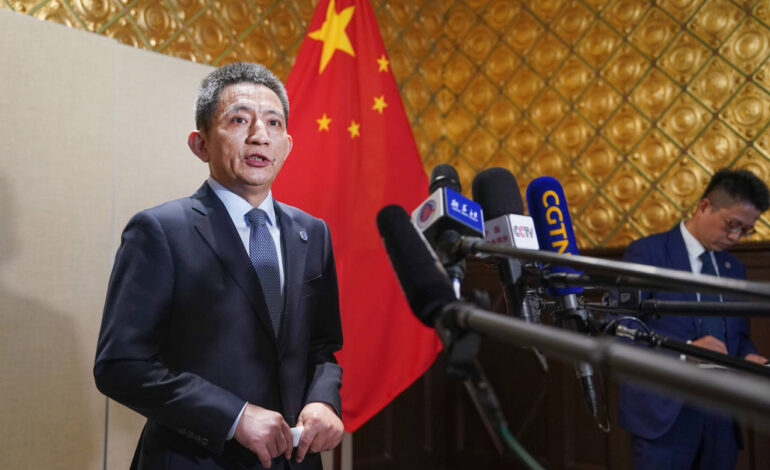China Signals Openness in Trade Talks While Sticking to Stance

China has dispatched a trade envoy to Washington, emphasizing its willingness to engage in dialogue while maintaining its current position on trade issues. This development marks a strategic approach as the two nations navigate ongoing tensions surrounding tariffs and market access.
The envoy’s visit, occurring in early January 2024, aims to address disputes that have strained relations between the two economic powerhouses. While the Chinese government is indicating an openness to discussions, they have made it clear that they are not prepared to concede any significant terms. This stance underscores Beijing’s strategy of maintaining its negotiating power without compromising on critical demands.
Beijing has faced challenges in recent years due to trade barriers imposed by the United States. The ongoing negotiations are critical as both countries seek to stabilize their economic relationship. The Chinese government, led by its trade envoy, is advocating for a dialogue that will focus on resolving outstanding issues, yet they appear resolute in retaining their key positions.
As the trade envoy engages with U.S. officials, the emphasis will likely remain on discussions rather than concrete agreements. This approach aligns with China’s broader strategy of leveraging dialogue as a tool to prolong negotiations, allowing them to assess the U.S. position while minimizing immediate concessions.
The economic landscape between China and the United States continues to evolve, with both countries closely monitoring each other’s moves. The trade envoy’s visit is seen as a pivotal moment, not only for the bilateral relationship but also for global trade dynamics. Observers note that while dialogue is essential, the lack of significant movement on key issues may lead to further frustrations on both sides.
In the backdrop of these discussions are the existing tariffs implemented by the U.S. on Chinese goods, which have had substantial impacts on trade volumes. According to the U.S. Census Bureau, trade deficits and surpluses between the two nations will be key indicators of any progress made in negotiations. The Chinese delegation is expected to press for the reduction of tariffs and greater access to U.S. markets as fundamental topics.
While the tone from Beijing indicates a commitment to discussions, the actual outcomes remain uncertain. The Chinese government’s insistence on not yielding to U.S. pressures reflects a calculated decision to project strength in negotiations. As the envoy engages in talks, it will be essential to observe how both countries navigate these complex discussions.
The trade envoy’s mission may also have implications beyond the U.S.-China relationship. Global markets are closely watching the developments, as any agreement or escalation could ripple through international trade systems. The stakes are high, with businesses and policymakers alike invested in the outcome of these negotiations.
In summary, China’s latest approach to trade talks signifies a blend of openness and firmness. The willingness to engage in dialogue is evident, yet the steadfast position on key issues illustrates the complexities inherent in U.S.-China trade relations. As discussions unfold, the international community will be keenly aware of how these negotiations may shape future economic interactions.






